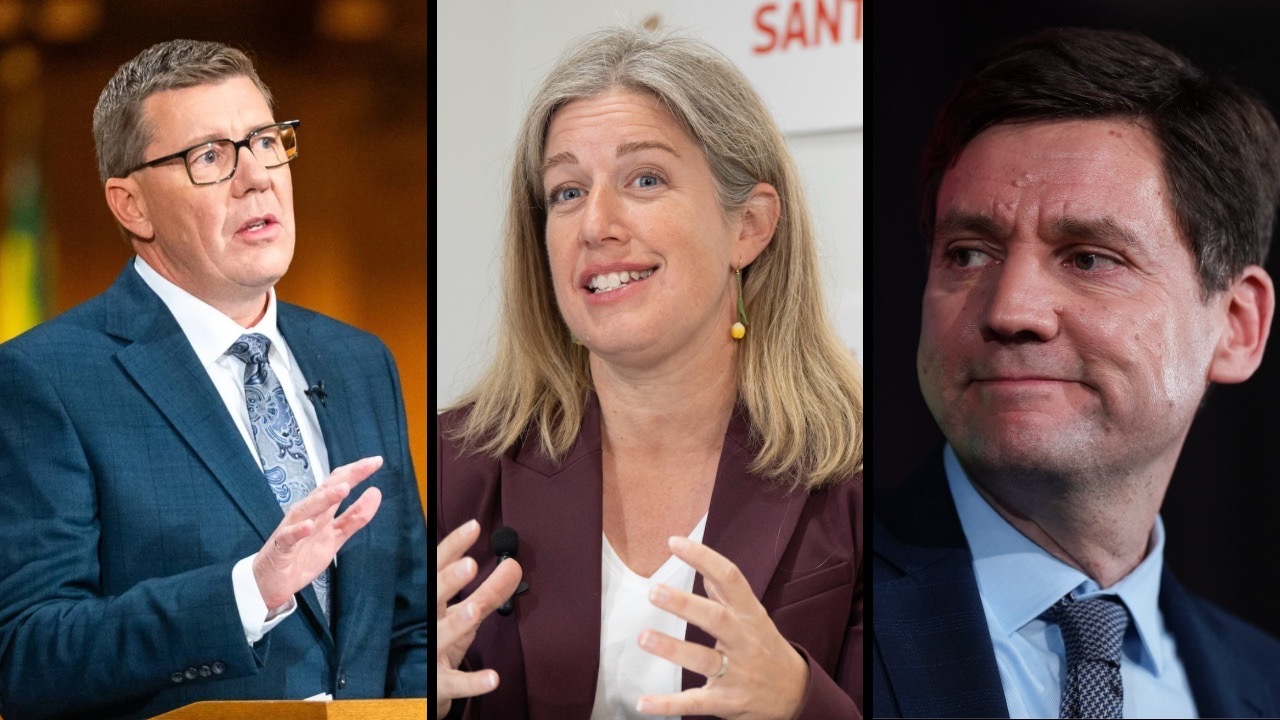Three provinces recently held elections—in New Brunswick, Saskatchewan and British Columbia—with trans rights on the ballot in each. As conservative parties in Canada shift further to the right, trans rights are in jeopardy across the country, causing stress and panic in trans communities. In New Brunswick, a pro-life group distributed anti-trans flyers ahead of the election, stirring up hate ahead of a contentious election. Saskatchewan’s anti-trans policies in schools are especially a source of stress for queer teens.
Following these elections, here’s where all three provinces stand on the shifting state of trans rights in Canada.
New Brunswick
New Brunswick’s Blaine Higgs and his Progressive Conservative Party lost the province’s top spot to Liberal leader Susan Holt— the first woman to lead the province. With the Conservatives ousted (including Higgs from his own seat as MLA), queer and trans people in New Brunswick can breathe a little easier. Higgs’s attacks on trans rights, especially in schools, were the first of this kind in Canada—and other provinces have followed suit.
Higgs amended the previous government’s Policy 713 to require kids under 16 to get parental consent before teachers could use their chosen name or pronouns. Since being elected, Holt has promised to reverse this decision, pledging to “defend vulnerable kids and to support children’s rights.” This means teachers will be able to use student’s chosen names and pronouns without having to notify parents.
The Liberals have also committed to quality health and mental health care for the LGBTQ2S+ community. Although these policies are promising, they aren’t currently very specific and it’s hard to know what the Liberals will really offer queer and trans folks.
Still, the Liberal’s election shows that Higgs’s effort to move his party to the right and attack trans rights in the province is not a winning ideology. While there are many other issues influencing voters right now, including affordability and healthcare, by voting out Higgs, New Brunswick voters have sent a strong message about what kind of province they want to live in: one that is welcoming for queer and trans people.
The Liberals commitment to trans healthcare and the rights of trans students is a step in the right direction for LGBTQ2S+ people in New Brunswick.
B.C.
Although the Conservative Party of BC garnered buzz around the province, B.C. voters have re-elected the NDP after more than a week of counting and recounting ballots. For queer and trans people in the province, this is particularly welcome news. The Conservative party has, however, gained a number of seats, and the large turnout for the conservatives points to a worrying trend in B.C. politics. MLAs elected under the Conservative banner have expressed anti-trans views, including Rosalyn Bird, who shared a video calling LGBTQ2S+ people “groomers.”
Although David Eby and the NDP, which will form a majority government, have not made specific commitments to furthering LGBTQ2S+ rights, their re-election signals a positive step for B.C.’s queer and trans communities. With a strong track record of fighting for and implementing policies that help queer and trans folks access healthcare and inclusion in schools, there is reason to hope that the NDP continue to defend the rights of queer and trans people in B.C., in spite of the party platform being thin on legal protections or expanded healthcare for trans and queer folks.
Since forming government in 2017, the B.C. NDP has made pre-exposure prophylaxis (PrEP) free. They’ve also expanded access for gender-affirming surgeries across the province. B.C. is also the first western province to offer bottom surgery procedures locally, rather than requiring patients to travel out of province for the procedure.
While Canada’s right-wing populist movement continues to grow, with the NDP in control of the B.C. legislature, trans healthcare, trans women’s place in sports and queer and trans inclusion in schools are in good hands.
Saskatchewan
Voters have re-elected the conservative Saskatchewan Party and their leader, Scott Moe. It’s an unsurprising—and disappointing—move for LGBTQ2S+ people in the prairie province. (The party will form a majority government, though full election results are not yet available.)
In October 2023, Premier Scott Moe introduced Bill 137, also known as the Education (Parents’ Bill of Rights) Amendment Act. This act requires parental notification and consent when students wish to change their name or pronouns at school.
The bill also changed sexual education in the province, allowing parents to opt their children out of the province’s human sexuality unit, as well as banning third party organizations like SOGI 123 from presenting gender and sexuality education programs in Saskatchewan schools.
Moe’s willingness to invoke the Notwithstanding Clause to defend Bill 137 is a particularly grim signal for trans rights in Saskatchewan.
Moe has also promised that, if elected, his government’s first order of business will be to ban “biological boys” from girl’s change rooms in schools.
NDP leader Carla Beck has criticized these policies, saying they aren’t “designed to improve our schools or make our classrooms more welcoming, better places for kids to learn.”
Beck isn’t the only one pushing back either. A court challenge led by UR Pride, and including Amnesty International Canada, seeks to have the bill struck down on the basis that it violates the Charter rights of trans and non-binary kids.


 Why you can trust Xtra
Why you can trust Xtra


